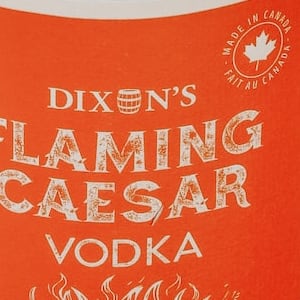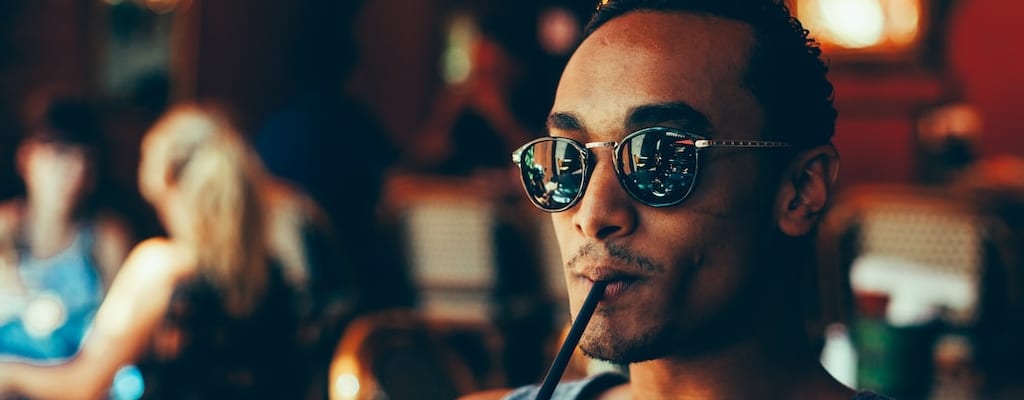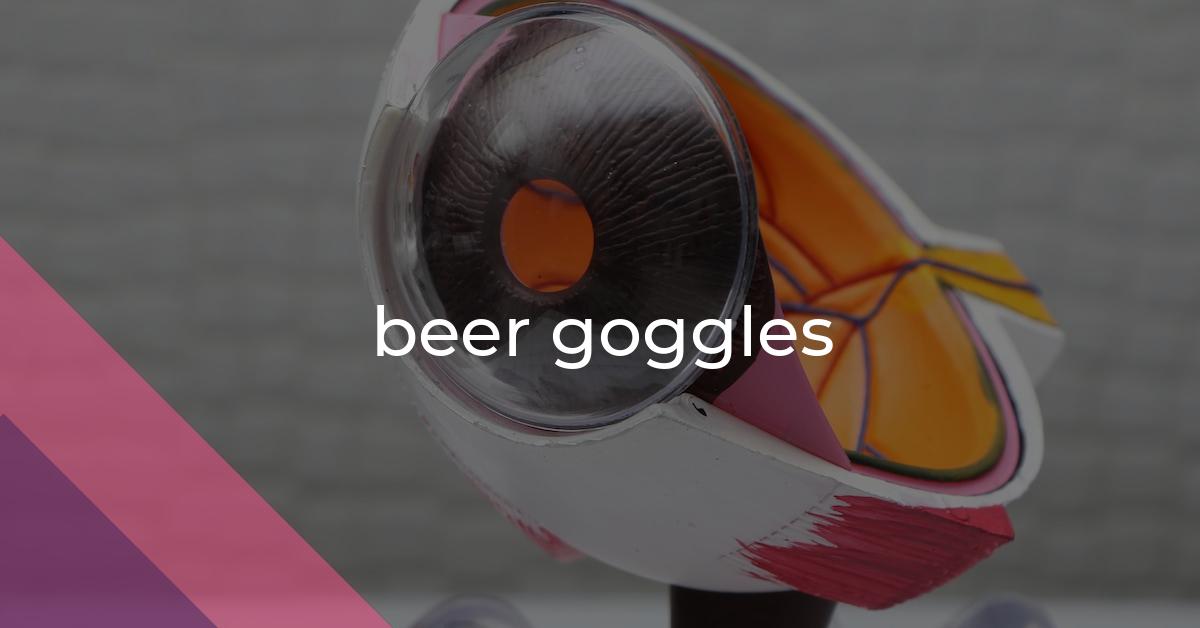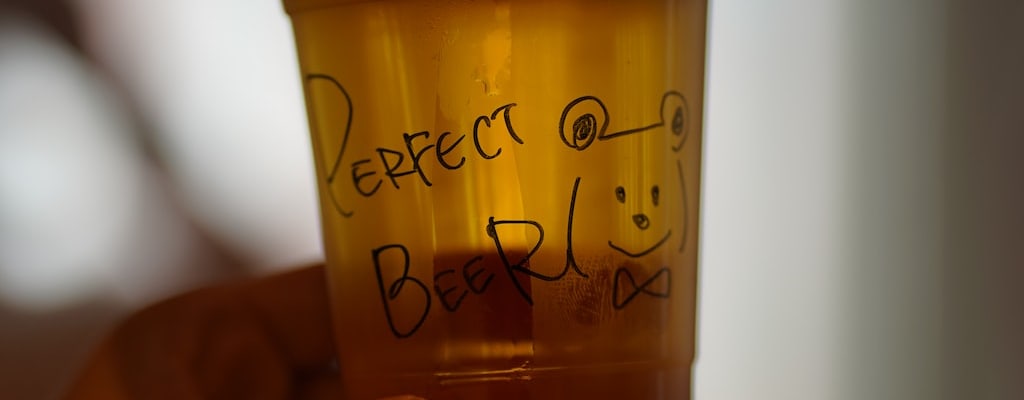beer goggles: Idiom Meaning and Origin
What does ‘beer goggles’ mean?
The idiom beer goggles is used to describe the phenomenon when alcohol consumption alters one's perception of attractiveness, making people or things seem more appealing than they actually are.

Idiom Explorer
The idiom "lay eyes on" means to see or look at something. It implies that the person looking at something has a strong desire or interest in it.
The idiom "jug ears" refers to someone with large or protruding ears. It is used to describe someone's physical appearance, often in a derogatory or humorous manner.
The idiom "in one's cups" refers to being drunk or intoxicated. It implies that someone has consumed so much alcohol that they are influenced or affected by it. The phrase is often used to describe someone who is behaving differently or experiencing the effects of excessive drinking.
The idiom "have eyes bigger than one's stomach" means to take or desire more than one can actually consume or handle.
The idiom "have a snootful" means to consume or drink a large amount of alcohol, often to the point of becoming intoxicated.
The idiom "hard on the eyes" is used to describe something that is visually unappealing or difficult to look at.
The idiom "hair of the dog" refers to consuming a small amount of alcohol to relieve a hangover, based on the belief that a small amount of what caused the hangover can help alleviate the symptoms.
The idiom "gooseberry eye" refers to a person feeling left out or excluded when in the company of a couple, often in a romantic setting.
The idiom "good looker" refers to a person who is physically attractive or visually pleasing.
Unveiling Perception Alterations
The idiom "beer goggles" refers to the phenomenon where alcohol consumption distorts one's perception of attractiveness. It is commonly used in informal contexts, particularly in the United States, to describe how alcohol affects our judgment and preferences when it comes to physical appearance.
The origin of the term "beer goggles" is believed to be relatively recent, with its first recorded usage around the late 20th century. However, its exact origin and creator remain unclear, as is often the case with idioms. Nevertheless, the term is thought to have emerged and gained popularity within pub and bar cultures, where alcohol consumption is common.
The metaphorical concept behind the idiom "beer goggles" is based on the idea that alcohol impairs our judgment and perception. When we're under the influence, we tend to perceive others as more physically attractive than they actually are when we're sober. This distortion of perception can be attributed to alcohol's impact on our inhibitions, decision-making, and sensory perception.
The idiom "beer goggles" is typically used in a playful or humorous manner to acknowledge the temporary nature of the phenomenon. It serves as a cautionary reminder that our perceived attractiveness can diminish once we regain sobriety. Additionally, while the term primarily focuses on physical attractiveness, it can also be extended to other areas where alcohol may influence our judgment, such as perceived intelligence, wit, or charm. However, its primary association remains with physical attraction.
It's important to note that the idiom "beer goggles" is colloquial in nature and primarily used in informal settings. Its usage in formal contexts would likely be considered inappropriate or unprofessional.
Although the idiom "beer goggles" provokes amusement and light-heartedness, it also raises broader questions about the complex relationship between perception, judgment, and alcohol consumption. It serves as a reminder of the potential pitfalls associated with relying solely on our intoxicated judgment and highlights how external factors can shape our perceptions. While the concept of "beer goggles" is often used humorously, it emphasizes the need for self-awareness and responsible behavior when alcohol is involved.
In addition to "beer goggles", there are other idioms related to the effects of alcohol on perception. One such idiom is "beer muscles", which refers to the false sense of strength or confidence one may experience when under the influence of alcohol. It suggests that alcohol can make us feel more physically capable or assertive than we actually are.
Another related idiom is "hard on the eyes", which means that something or someone is visually unappealing or unpleasant to look at. This idiom can also be linked to "beer goggles" as it implies that alcohol may create a skewed perception of attractiveness, causing us to find someone appealing when we're under the influence but unattractive when sober.
Overall, the idiom "beer goggles" offers insight into the ways in which alcohol can alter our perception and judgment. It reminds us of the limitations of our intoxicated judgment and encourages us to approach situations involving alcohol with self-awareness and responsibility. Furthermore, when considering related idioms such as "beer muscles" and "hard on the eyes", we gain a more comprehensive understanding of the multifaceted effects of alcohol on perception and attractiveness.
Example usage
1. After a few drinks, John was wearing his beer goggles and thought that the unattractive woman at the bar was the most beautiful girl he had ever seen.
2. Sarah regretted using her beer goggles and sleeping with a guy she met at the party, as she realized he wasn't as attractive as she initially thought.
3. The idea behind the term beer goggles is that alcohol can make people perceive others as more physically attractive than they actually are.
More "Drinking" idioms



